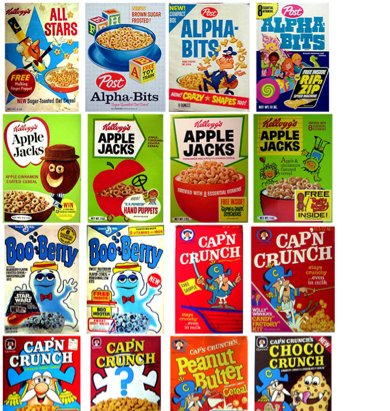Health Project: Cereals

PRODUCT DETAILS Now available in a bag, Quaker Steel Cut Oats are gluten free. Look for specially marked packages. These 100% whole grain oats are steel cut, rather than rolled, offering you a heartier texture and a rich, nutty taste. And our expert milling techniques remove stray gluten containing grains to deliver high quality gluten free oats with the same authentic toasted flavor you’ve come to love. Add on your favorite toppings, or use as a healthy and tasty gluten free ingredient to many recipes. Made with 100% whole grain Quaker Oats. Gluten free.
Non-GMO Project verified. Good source of fiber. A sodium free food.
The first time I ran it, it failed because it couldn't write to C: Windows inf bth.inf. Here's a workaround. Browse to the file, right click, click Properties. On the 'Security' tab, click 'Advanced'. Usb 28286 device drivers for mac.
. Health Benefits of Breakfast Cereal Health Benefits of Breakfast Cereal Experts worldwide agree that breakfast is the most important meal of the day, for kids and adults alike. Ready-to-eat cereal ranks as one of the best choices available as part of a nutritious breakfast. Cereal is typically a low-fat, nutrient-dense food with many essential vitamins and minerals. And in addition to delivering important nutrients and essential vitamins such as iron, B vitamins and zinc, cereal also provides the important benefits of grains. Breakfast cereal — what scientific studies say. Despite regional differences in nutritional fortification around the world, breakfast cereal is an effective way to provide vitamins and minerals to the diet.
Cereal helps incorporate milk into the diet. About 95 percent of ready-to-eat cereal in developed markets is eaten with milk, thereby providing calcium and protein for consumers. 1. Cereal eaters typically have lower BMIs (body mass indexes) than their non-cereal eating counterparts.
2 Breakfast overall — what scientific studies say. Kids who eat breakfast are less likely to be overweight than those who don’t, and those who eat ready-to-eat cereal are less likely to be overweight than those who eat other kinds of breakfast.3 An Australian survey reported, for example, that children ages 2-16 who chose a cereal breakfast were less likely to be overweight than those who skipped breakfast or chose an alternate breakfast. 4. Eating breakfast may help children do better in school by improving memory, mood, psycho-social function, test grades and school attendance, according to a recent review of 22 studies. 5. Skipping breakfast is associated with a number of poor health outcomes and compromising behaviors among children and adults, including higher blood cholesterol and insulin levels, smoking, alcohol use, physical inactivity, eating disorders and unhealthy weight management practices. 1 Song, WO, OK Chun, J Kerver, S Cho, CE Chung, S Chung (2006) Ready-to-Eat Breakfast Cereal Consumption Enhances Milk and Calcium Intake in the US Population.
Cereal Box History Project
J Am Diet Assoc. 2 de la Hunty A and Ashwell M. (2007) Are people who regularly eat breakfast cereals slimmer than those who don’t? A systematic review of the evidence. BNF Nutrition Bulletin. 3 Albertson AM, Affenito SG, Bauserman R, et al.


The relationship of ready-to-eat cereal consumption to nutrient intake, blood lipids, and body mass index of children as they age through adolescents. J Am Diet Assoc. 4 Grieger JA, Chan L, Moss C, Miller M, Celander M, Cobiac L. Diet and physical activity differences in Australian adolescent male consumers and non consumers of ready-to-eat cereals. Nutrition Society of Australia. 5 Rampersaud GC, Pereira MA, Girard BL, Adams J, Metzl JD. (2005) Breakfast habits, nutritional status, body weight, and academic performance.
J Am Diet Assoc. 6 Cohen, B, Evers, S, Manske, S, Bercovitz, K, & Edward, HG (2003).
Smoking, physical activity and breakfast consumption among secondary school students in a southwestern Ontario community. Canadian Journal of Public Health. 94(1):41-44; Keski-Rahkonen, A, Kaprio, J, Rissanen, A, Virkkunen, M, & Rose, RJ (2003). Breakfast skipping and health-compromising behaviors in adolescents and adults. European Journal of Clinical Nutrition.
57(7): 842-853; Smith, KJ, Gall, SL, McNaughton, SA, Skipping breakfast: longitudinal associations with cardiometabolic risk factors in the Childhood Determinants of Adult Health Study. American Journal of Clinical Nutrition. 92(6):1316-1325; Zullig, K, Ubbes, VA, Pyle, J, & Valois, RF (2006). Self-reported weight perceptions, dieting behavior, and breakfast eating among high school adolescents. Journal of School Health.